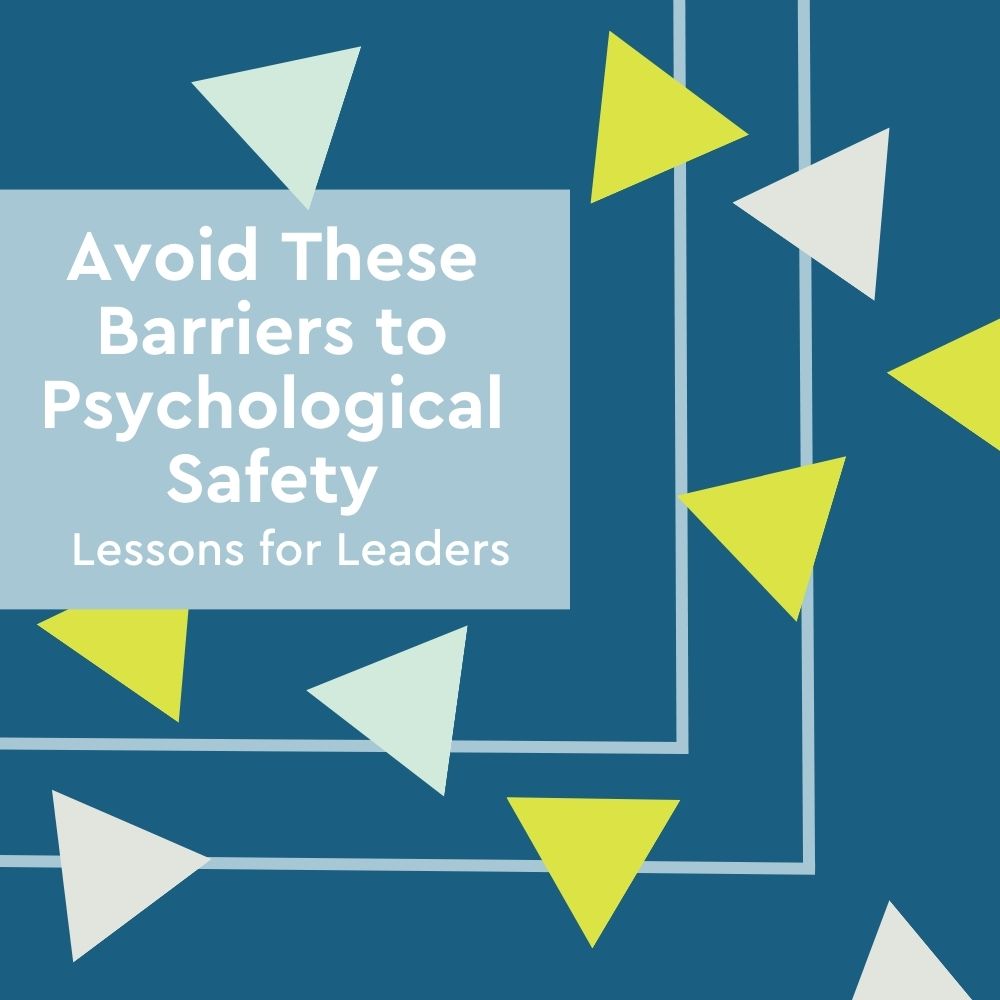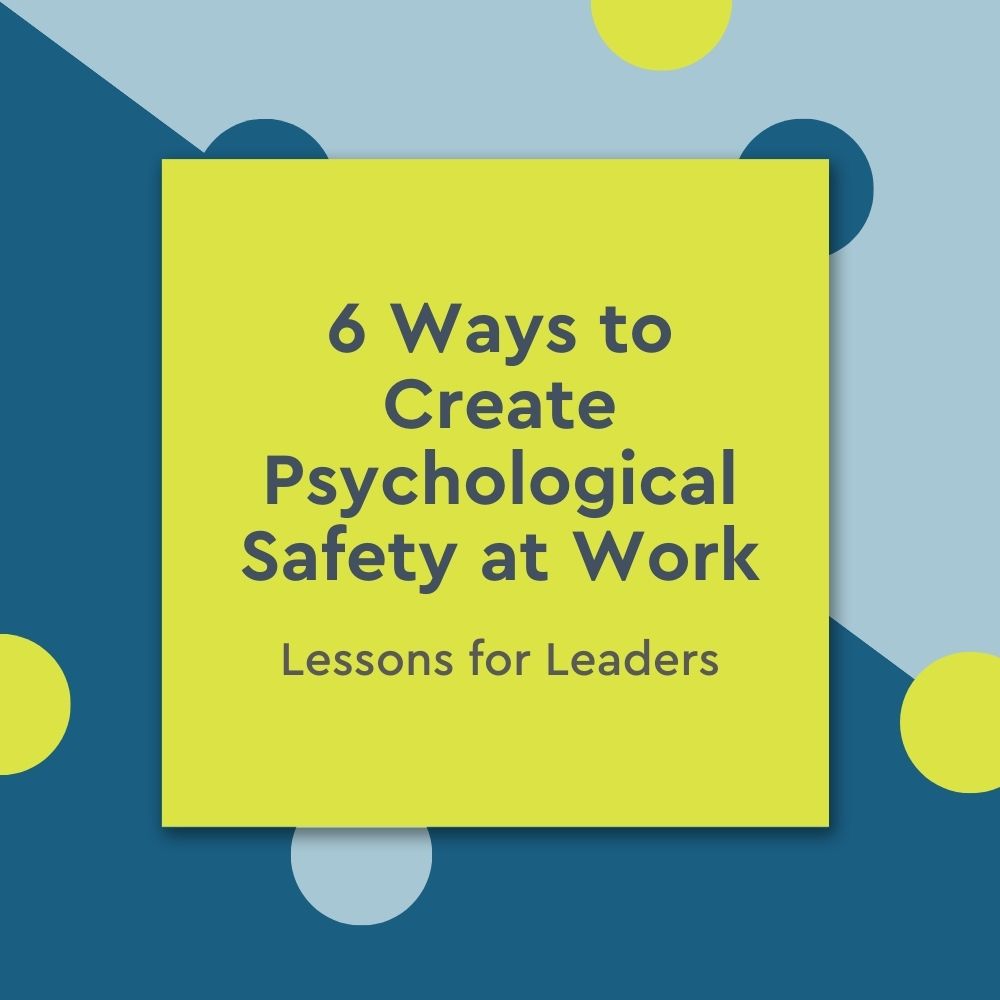Coaching Coffee Break | 3.21.24 | Amy McKenna & Dave Barnett
Amy McKenna introduces Dave Barnett to HumanPoint in their first coaching coffee break.
How generational differences impact workplace culture
A manager kept asking the vice president of her company for a promotion. The VP repeatedly asked her to define her new role. In turn,...
Leading with authenticity in the Human Era: Lessons for leaders
“Be true to yourself” isn’t a worn-out pep talk. It’s valuable advice to anyone who aspires to be an effective leader. Studies show higher work...
Avoid these barriers to psychological safety: Lessons for leaders
Bosses want their employees to feel it’s OK to ask for help or share a seemingly silly idea. Leaders may even understand how psychological safety...
6 ways to create psychological safety at work: Lessons for leaders
An organization’s effectiveness depends on its employees’ ability to see themselves as valued team members and feel comfortable sharing opinions without negative consequences. A three-year...




